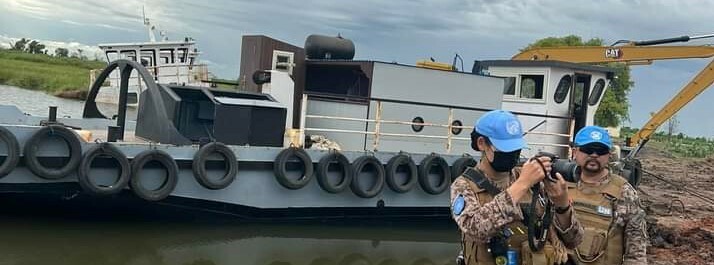Authorities in Unity State have announced that Egyptian engineers have assembled four large machines in preparation for the clearing of River Naam.
This development comes amidst ongoing discussions surrounding the controversy of dredging versus clearing the river.
The exercise has encountered delays due to disagreements among government officials, civil society activists, and academia. These stakeholders have recommended a scientific and environmental assessment to evaluate the potential impact on the ecosystem before proceeding with the clearing operation.
River Naam is one of several tributaries that contribute to the waters of the River Nile.
Speaking to Radio Tamazuj over the weekend, Deputy Governor Tor Tungwar Kuiguong has revealed that the initial phase of the clearing operation will cover the stretch from Yoanyang to Lake No. The subsequent phase will encompass the areas from Bentiu to Mayom County and the Bahr al Ghazal region.
“The engineers have successfully deployed three fully equipped machines with large excavators onto the water’s surface. These machines will be instrumental in the cleaning process of River Naam. We believe that clearing the river of reeds and obstructions will help mitigate flooding,” stated Deputy Governor Tor.
Lawmakers and residents in Unity State have voiced their support for the planned clearing operation, emphasizing its potential to alleviate flooding in the area.
Rose James, a resident of Rubkona town in Unity State, expressed her belief that cleaning River Naam could prevent further flooding and improve the challenging conditions faced by the local population.
Residents have expressed their frustration over delays in the clearing plans for River Naam. According to knowledgeable sources, the exercise was originally scheduled for May but encountered postponements.
A concerned resident, who preferred to remain anonymous, called upon the national and state governments to prioritize the clearin of River Naam, as the current situation has adversely affected agriculture and the local population.
Koang Bilw Duar, a fisherwoman from Bentiu, added her voice to the growing chorus of support for the clearing of River Naam. She emphasized the urgency of the operation and its potential to address the issues faced by communities in the area, stating that it would enable the government to provide necessary assistance and allow people to return to their homes once water levels subside.
Zacharia Manyang, the acting chairperson of the civil society in Unity State, highlighted the impact of the delayed clearing operation on the local population.
Manyang fully supported the clearing of River Naam and stressed that further delays could result in devastating floods in previously affected areas and further worsen the situation in areas that were least affected in the past. He urged the national unity government and the government of Unity State to expedite the clearing process.




